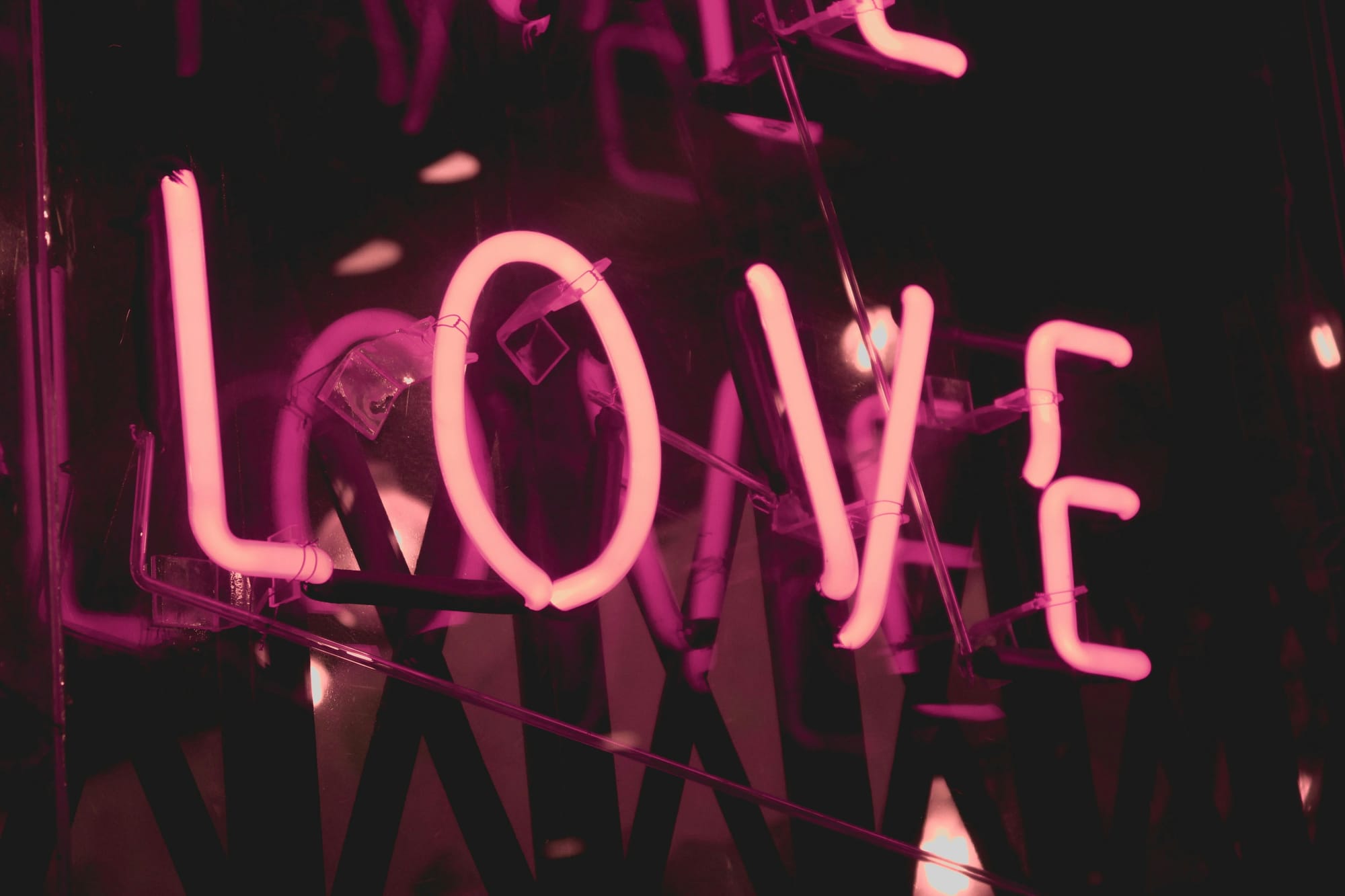

1. Self-Love as Foundation
I recently read an essay by Zeynep Gümüş, in which she makes a promise to herself: to love her own self consistently. Her beautiful reflection set me down a long path of consideration. This essay captures some of my explorations along that path.
Her essay prompted an immediate but lingering question: what does it actually mean to love myself?
The question sounds simple, even obvious. Yet the more I ponder it, the more elusive it becomes. What does “myself” mean? Is that Raaj the engineer? The entrepreneur? The husband, father, son? Do I love my achievements? My flaws? My personality quirks? My body, my mind, my story? Each feels like part of the answer, but none quite reaches the heart of it.
This question of what exactly we’re loving when we love ourselves reminded me of the parable of the blind men and the elephant. Each man touches a part — the tusk, the ear, the trunk — and insists he has grasped the whole. Identity works in much the same way: we cling to fragments (“I am my work,” “I am my relationships,” “I am my past”) and mistake them for the entirety of who we are. Yet identity itself is transient. Loving only identity feels like trying to hug a shadow rather than its source.
Beneath those fragments there is an immensity — something we can sense but rarely put into words. And perhaps that’s where self-love begins: not in polishing the fragments of identity, but in accepting that we are greater than the sum of our perceived parts. In turning toward the vast, unnamed awareness beneath and meeting it with unconditional care. Self-love might mean peeling back the masks of identity to stand in awareness of the core mystery itself — and holding that core with kindness.
Resolving the object of self-love then raises a deeper question: what does this kind of love actually feel like in practice?
It became clear to me that self-love isn’t romantic passion or the admiration we reserve for heroes. It isn’t even the warm affection between friends. The idea of loving myself feels less like admiration and more like nurture. The closest analogy I can find is the love a parent has for a child.
A good parent doesn’t love their child only when the report card shines or the performance earns applause. They love through scraped knees and temper tantrums, through mistakes and missteps. A love that is not blind, but steadfast. It carries with it acceptance — you are worthy, even as you are. It brings kindness, encouragement, and the gentle faith that growth is always possible.
What if self-love is the same? Not self-indulgence, not ego-polishing, but becoming the inner parent who holds us with patience. Who forgives. Who whispers encouragement when we need it most, when the world’s voices grow harsh.
In conversations with my own children, now in their twenties, I have often said: “In raising you, I did whatever I knew how best to do at that time. In retrospect, one can always second-guess with the benefit of hindsight.”
The same grace I extend to my younger parenting self — operating with the knowledge, emotional capacity, and circumstances I had then — is the grace the inner parent must extend to all of our selves: past, present, and future.
We must accept unconditionally our fundamental worth, our humanity, and our right to care — while still keeping a discerning eye on our behaviors.
In this way, we remain open to learning from mistakes and choosing wiser paths in the future.
We accept ourselves as we are — the good, the bad, and the ugly — without pretending all behaviors are equally wise or helpful.
There is, of course, one limit to the parent analogy. We can outgrow our parents — their knowledge, their perspective, even their capacity to care for us. However, the inner parent is not someone we eventually leave behind. We cannot outgrow ourselves. This is an enduring voice that will accompany us as long as we live. And because it is always with us, how we choose to cultivate that voice — harsh critic or steady encourager, punisher or patient companion — shapes not just moments but the texture of our entire life. That makes the work of self-love all the more vital: it can be either the source of quiet violence, or the ground of unconditional care.
2. Ancient Wisdom
Zeynep herself gestures toward this lineage, noting how Aristotle tied self-love to human flourishing, how Kierkegaard saw it as a prerequisite for loving one’s neighbor, and how other philosophers wrestled with the question of the “good life.” Her reflections reminded me that while my own journey is personal, the inquiry is timeless. Humanity has been circling this question for millennia.
Socrates and Plato placed knowing oneself at the foundation of virtue. To love oneself, in their framing, is first to see oneself clearly, without distortion, and from that clarity to live in alignment with the good. Aristotle developed this further in the Nicomachean Ethics, describing proper self-love not as vanity but as a virtue in itself. To love oneself rightly is to cherish the rational and moral core within — and in doing so, to act justly not only toward oneself but toward family, friends, and community.
The Stoics wrestled with the balance between self-love and duty, seeking harmony between personal resilience and the demands of the common good. Cicero warned of the dangers of placing self-love above all else, a reminder that even something as essential as self-regard can become destructive when unmoored from balance.
Kierkegaard, centuries later, sharpened the Biblical command to “love your neighbor as yourself.” He pointed out that the hinge of that commandment is in the "as yourself" part. Without genuine self-love, our attempts to love others collapse into projection, dependency, or even resentment.
In the 18th century, Rousseau drew the line we still find useful today: amour de soi, the natural, healthy self-love that sustains life and compassion, versus amour-propre, the ego-driven craving for recognition and comparison. The first nurtures; the second corrodes.
Modern psychology reframed the debate in its own language. Freud cast self-love as narcissism — necessary for survival in moderation, pathological in excess. Later, Erich Fromm and the humanistic psychologists reclaimed it as essential for loving others and achieving personal well-being.
Across centuries, cultures, and vocabularies, the theme is remarkably consistent: without self-love rightly understood, both flourishing and love for others falter. The challenge has always been to distinguish clearly between the two — and then to cultivate the one without sliding into the other.
And so, I return to the insight that began this essay: it is not wise to love only identity. The philosophers remind us that identity is fragile, transient, always shifting. To anchor love there is to embrace the shadow rather than its source. Real self-love, whether in Aristotle’s virtue, Kierkegaard’s neighbor-love, or Rousseau’s amour de soi, points us back to something deeper — an intrinsic, core worth that is not reducible to our roles, achievements, or comparisons.
3. Dangers of Self-Love Distorted
There is another reason self-love is so elusive: we are capable of committing acts of extreme psychological violence1 against ourselves. It happens when we turn a merciless critical eye inward, when we measure ourselves against ideals that are by nature unachievable, when perfection becomes the standard and every falling short feels like cataclysmic failure.
For years, I lived with this quietly. Each birthday brought not celebration but melancholia — a faint shadow of depression. At first, I could not explain it. But looking more closely, I eventually realized that each birthday had become a ledger — another year passed, another accounting of achievements weighed against a vague, shifting benchmark I could never meet because I had never actually defined it in the first place. As Pink Floyd captured so perfectly in their lyrics, we race against time itself, chasing something that always stays just ahead of us.²
The result of this accounting was always the same: I had fallen short, even if I could never quite define of what or how.
Only later, through conscious awareness, did I begin to dismantle that reflex. To see that my reference point itself was nebulous, even illusory. That my worth could not be tallied by comparison against an idealized other, or even against my own imagined future self.
Ideals themselves are a kind of obligation we place upon ourselves. They sneak in as silent contracts — “I must achieve this,” “I have to become that” — and quickly harden into laws we never consciously chose. At their best, ideals can inspire; but when held rigidly, they function less as invitations and more as obligations and implied debts. The result is that we walk through life feeling perpetually in arrears. Always trying to catch up. Never quite getting there.
Worse, seeing the world through the lens of ideals distorts reality in profound ways.
The ideal becomes a label slapped over experience, and evaluation collapses into a binary:
Am I there or not? Success or failure?
The living spectrum of possibility disappears, the subtle shades in between erased by the blunt logic of “yes” or “no.”
Incremental growth and fragile victories vanish under the tyranny of perfection.
Through that lens, even real, tangible growth itself becomes invisible. A person who is kinder this year than last may still feel “not kind enough.” A musician who learns a new piece sees only the flaws, not the progress. Ideals flatten the landscape: either the summit has been reached or the journey doesn’t count.
But life is not flat, nor static. Nothing in the universe is.
And when we recognize this, ideals themselves loosen their grip. They shift from tyrants into companions — stars to navigate by, not ledgers to measure against.
4. Self-Love, Impermanence, and Synthesis
This brings me to a final turn in this inquiry: impermanence and what it reveals about self-love. To hold ideals lightly is to remember that nothing in the universe is fixed. Everything changes; impermanence is the only permanence. To clutch an ideal as though it were eternal truth is to ignore the reality that both we and the world are in constant motion.
Seen in this light, even the “birthday ledger” is transformed. Instead of asking, “Why didn’t I achieve more?” the gentler question becomes, “Given who I was then, with what I knew and what I was carrying, did I do what seemed best at the time?” The answer, almost always, is yes. And when it is no, the task is not self-condemnation but learning — so the mistake does not become a repeated pattern.
When ideals are held lightly, they become companions rather than tyrants — guides that can shift as we grow, constellations we navigate by rather than walls we crash against. The question is no longer “Have I arrived?” but “Am I moving, learning, becoming?” From there, the gray-scale world reappears: subtle growth, fragile victories, small mercies, all visible again. And in that visibility, compassion has room to grow. We grasp the source and see the shadow for what it is — an illusion.
Looking back across these traditions — from Socrates’ know thyself to Aristotle’s virtuous self-love, from the Stoics’ balance of duty to Rousseau’s amour de soi, from Kierkegaard’s neighbor-love to Freud and Fromm’s psychology — a pattern emerges. The forms differ, but the heartbeat is the same: self-love is not indulgence, nor is it perfection. It is the ground of flourishing, the precondition of love for others, and the antidote to the quiet violence we so often inflict upon ourselves.
Self-love, rightly understood, is:
acceptance without complacency
kindness without vanity
encouragement without illusion
It is to become one’s own parent, one’s own neighbor, one’s own companion in this strange and brief passage of time we call life. It is to recognize, with reverence, that beneath the fragments of identity there is an immensity — the whole elephant, not just the parts — and that this immensity is already worthy of care. To love ourselves is, finally, to unlearn the inner assault — to stop waging war on our own worth — and to discover in its place a ground of care that makes all love possible.
And from that ground, love naturally overflows outward. Not from scarcity, not from need, but from abundance. To love oneself is to unlock the capacity to love others more freely, more fully, more truly. Perhaps that is what all these traditions have been circling around for centuries: that self-love is not the end of love, but its beginning.
An Invitation to Inquiry:
If this inquiry resonates, you might pause with a few questions of your own:
- When I say “myself,” what am I really pointing to? My roles, my story, or something deeper? Does any single identity encompass all of me?
- How do I treat myself when I fall short of an ideal? With patience, or with judgment? Is there room for kindness?
- Can I extend to my past selves the same grace I might offer a child — doing the best they could with what they knew at the time?
- Which ideals feel like stars to navigate by — and which weigh on me like debts? Have any of them been acquired by “implication” rather than chosen consciously?
- How does remembering impermanence change the way I see success, failure, and self-worth?
These are not riddles to be solved but companions for the journey. Sometimes the most important part of self-love is simply the willingness to pause, to notice, and to turn toward oneself with care. For me, tackling these questions longhand, with paper and pen, has been not only therapeutic but also a spiritual practice.
Further Reading:
If you’d like to see what the ancients had to say—and how later thinkers picked up the thread—start here:
- Aristotle’s Nicomachean Ethics (Books VIII–IX on friendship and self-love)
- Kierkegaard’s Works of Love
- Rousseau’s Émile (for the amour de soi vs. amour-propre discussion)
- Erich Fromm, The Art of Loving (a modern reclaiming)
Footnotes:
1 I use this strong language deliberately. Many of us have become so accustomed to harsh self-criticism that we don't recognize its destructive impact. Sometimes we need stark terms to see clearly what we're doing to ourselves—not to dramatize the experience, but to motivate genuine change.
² Pink Floyd, Time, from Dark Side of the Moon. Apparently even quoting two lines of a popular song can invite the tender ministrations of copyright lawyers, so I’ve only gestured at it here.
With quiet thanks to Shaira Dela Peña on Unsplash for the image.


